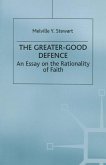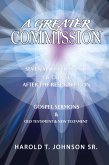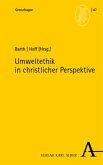In Church of the Ever Greater God, Aaron Pidel offers the first major English-language study of the ecclesiology of Erich Przywara, S.J., one of the most important Catholic theologians of the twentieth century. As Pidel shows, Przywara's idea of analogia entis, or analogy of being, shaped his view of ecclesiology. According to this theory, every creature is made of various tensions or polarities in its being. Creatures flourish when these tensions are in equilibrium but transgress their creaturely limits when they absolutize one polarity over the other. Pidel demonstrates how Przywara used the concept of analogia entis to describe the structure and rhythm of the Catholic Church. In Przywara's view, the Church, too, is essentially constituted by her tensions or polarities, and the members of the Church conform to that analogical tension to varying degrees of fidelity. Przywara claims that analogia entis not only describes the Church as she is but also can be used as a criterion for discerning the spiritual health of the Church by helping her to see where her equilibrium has become imbalanced. Pidel maintains that Przywara thought that the biggest risk to the Church's analogical equilibrium in the last century was a de-emphasis of the typically Ignatian ideas of reverence for the Divine Majesty and missionary extraversion. Przywara's vision of the Church is presented as a corrective to this one-sided imbalance. In drawing attention to Przywara's metaphysically informed and deeply Ignatian ecclesiology, Pidel's study will appeal not only to scholars of Przywara but also to all those who study ecclesiology and Catholic theology more broadly.
Hinweis: Dieser Artikel kann nur an eine deutsche Lieferadresse ausgeliefert werden.
Hinweis: Dieser Artikel kann nur an eine deutsche Lieferadresse ausgeliefert werden.








